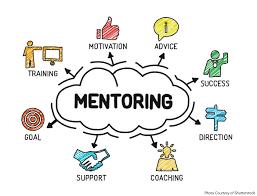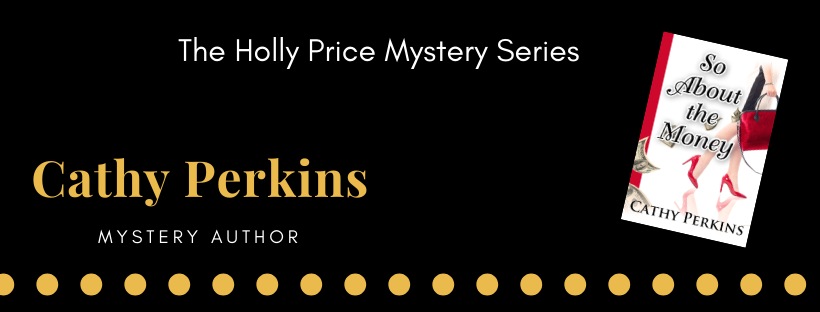The term “mentor “ gets thrown around a lot, but what does it really mean?

I’ve spent a huge chunk of my adult life as a manager, then senior manager and director for one of the big four international accounting firms. By definition, my role included developing the people who worked under me—not just their technical skills, although those were essential, but also their relationship skills. Being able to explain and interpret complex transactions, laws and financial requirements to a client, for example, is a key component of the job at this level in the industry.
But was I a mentor to these younger people?
I gave that a lot of thought as I wrote and rewrote this article. My role was to reinforce how the mentee’s current job and contributions fit into his or her long-term career goals, as well as how they personally fit into the bigger picture of the company’s goals. This is probably the classic mentor description.
Sidebar – Speaking of classics, did you know “mentor” comes from the character “Mentor” in Homer’s epic, The Odyssey? Mentor was a trusted friend of Odysseus, the king of Ithaca. When Odysseus fought in the Trojan War, Athena (as Mentor) served as friend, guardian and counsel to Odysseus’ son Telemachus. (Let’s hear it for high school English classes.)
Curious as to how other people viewed mentors, I spent some time online, reading numerous articles about mentors. I found the definition and description varied, depending upon the industry. In social services, for example, especially when working with young people, there’s often an emphasis on core values, fun, volunteering and empathy.
I liked my job and a lot of the people I met over the years, but beyond the shared core values, I didn’t see a lot of crossover to this description. Instead, in a broader sense, I saw a mentor as someone—regardless of the industry—who took a special interest in helping another person develop into a successful professional.
So how does that apply in the writing community?
Over the past few years, I’ve met so many people in the writing community who are incredibly generous with their time and knowledge, who’ve been willing to offer a guiding hand. Sometimes a friendship developed that has lasted for years; with others, it’s been a helpful gesture in the moment.
Are the people in the first category still mentors? Perhaps. The guys at the South Carolina Writes Workshop took me in as a total newbie, encouraged me and tactfully offered suggestions about conflict and structure for a novel. When I moved west, the Yakima Ladies listened to my chapters at our critique sessions and their absolute belief in my ability to weave character, dialogue and conflict meant as much as the woman who pushed me to seek publication.
Initially, all of these wonderful people went out of their way to encourage and teach me the necessary skills of the craft of writing or introduced me to other people who could further that knowledge. While we’re less likely to share that beginning guidance today, the trust and information sharing is still definitely there.
What about the second group? While “mentor” implies a continuing relationship, I can immediately think of people who befriended me at conferences, introduced me to agents, editors, and other authors, and generally offered the critical piece of help I needed in that moment. That generosity is it’s own special category of “mentor.”
Holly Price, the heroine in my current mystery series, is unexpectedly running the family after her father has a midlife brain-fart, runs off with his yoga instructor, and leaves his wife and the business in a precarious position. She’s traded a high profile specialty position in Seattle for a lead role in the family accounting practice. In her Seattle position, she’s never had to be a manager/mentor for the staff and she’s not sure she knows how to do it. Fortunately, Rick (her right hand man) believes in her and her ability:
“I know you used to work for a transaction group,” Sammy said. “What does ‘due diligence’ mean?”
Holly considered how to answer in guy terms. “Before you bought a used car, you’d want to know it ran, right?”
Sammy gave her a look that said, Well, duh.
“So you’d check for Bondo, rust. Get a Carfax report to see if it’d been wrecked or trashed by a flood. Maybe have a mechanic run tests.”
“Got the picture.”
“Buying a ‘used’ company is the same thing. Is the asset labeled ‘building’ an office tower in Pasadena or a burnt-out shell in Watts? Are there liabilities hidden somewhere that are going to come back and bite you?”
“And you want to look at one of our clients?” Rick’s surprise showed in his voice.
She nodded.
“Anything I can do?” Sammy asked.
“Thanks, but not right now.”
Sammy headed to his cubicle and Rick followed her down the hall. As soon as they entered the conference room, he said, “You’re better with the staff than you realize.”
A faint blush warmed her face. “Thanks.”
~~
 SO ABOUT THE MONEY (Book 1 in the Holly Price Mystery series) romps through eastern Washington with its rivers, wineries, Native American casinos, and assorted farm animals. Add in some wicked fun chemistry between the CPA amateur sleuth and a local detective and she better solve the case before the next dead body found beside the river is hers.
SO ABOUT THE MONEY (Book 1 in the Holly Price Mystery series) romps through eastern Washington with its rivers, wineries, Native American casinos, and assorted farm animals. Add in some wicked fun chemistry between the CPA amateur sleuth and a local detective and she better solve the case before the next dead body found beside the river is hers.
Universal buy link – https://books2read.com/u/bOANPQ
This post appeared on “Just the Facts, Ma’am” blog here (https://thoniehevron.wordpress.com/2018/08/17/mentors-so-what-is-a-mentor/ )
